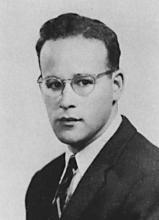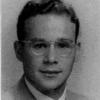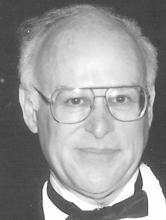 |
Bob deLemos had a distinguished, if far too brief, medical career focused on the care of premature infants with lung problems.
At Amherst he was a Bond Fifteen history major who became premed only in junior year. After Amherst he received his MD cum laude from Harvard Medical School in 1962, followed by an internship and residency at Children’s Hospital in Boston, and a fellowship in neonatology at Johns Hopkins Medical Center. There he worked with Mary Ellen Avery, an early pioneer in the new field of neonatology.
Bob’s interest in premature infants was fueled by the death of John F. Kennedy’s infant son, who died from hyaline membrane disease while Bob was a pediatric resident at Children’s. Much of his very successful 30-year research career focused on the search for treatments for this disorder and related complications.
He played a critical role in the development of a new high-frequency ventilator for premature infants with injured and poorly developed lungs (a respirator that classmate-physician Al Most called “revolutionary”). This advance contributed to the remarkable improvement in survival that has occurred for premature infants over the past four decades.
Bob was the chairman of pediatrics at Wilford Hall Hospital at Lackland Air Force Base in San Antonio. After retiring from the Air Force as a full colonel, he was the chairman of the Department of Physiology and Research at the Southwest Foundation for Biomedical Research in San Antonio.
In 1991 he moved to California and became Chief of Neonatology at the University of Southern California in Los Angeles, and Hastings Professor of Pediatrics and director of neonatal intensive care at Good Samaritan Hospital. He was also a consultant to the Surgeon General of the U.S. Air Force.
 |
His academic career was characterized by tremendous commitment to the care of the babies and their families who needed him, as well as a true passion for teaching and research. He was one of the first and most influential neonatologists in this country, and he taught many fine men and women who were inspired by his passion, knowledge, and understanding to dedicate themselves to medicine and to the specialties of pediatrics and neonatology.
But Bob is fondly remembered as much for his community service as for his clinical and research work. He served as team physician when his older sons, Steven, James and David played football from Junior League, through Middle School and High School. Dr. “D,” as Bob was called, was respected and loved by the players, the coaching staff, and the administration at the New Braunfels schools where he served.
Bob’s parents ran a camp in New York throughout his childhood. It is quite fitting that his passion in adulthood was a camp for disabled children near San Antonio, called Children’s Association for Maximum Potential (CAMP). Bob was a founding board member and served as president for 17 years. Moreover, he spent essentially all of his vacation time for many years at CAMP, even after he moved to Los Angeles. He made it his mission to give these kids a true camp experience regardless of whatever disability the child might have, and most importantly to have fun and to be treated with dignity and respect.
Al Most wrote in his “In Memory” sketch that Bob was a quiet man who never tooted his own horn. Yet after his death the San Antonio Express needed two long columns to document his caring for kids with special health needs. The local United Way created the “Bob de Lemos Volunteer of the Year” award to recognize a student who had logged the most voluntary service hours.
Bob’s enthusiasm for learning and education, his hard-core work ethic and a lifelong commitment to public service served as an example to his children. They have followed in his footsteps and have pursued professional careers in law, medicine, counseling and teaching, as well as involvement in a wide variety of good causes.
Bob has been missed by his family (including his sister, Anne, who is Bill Krupman’s wife) and friends, the countless patients and families he helped both directly and through his research, and the children and their families that he helped and touched through CAMP.
Robert A. deLemos died of a cerebral hemorrhage in Los Angeles Nov. 19, 1997.
 |